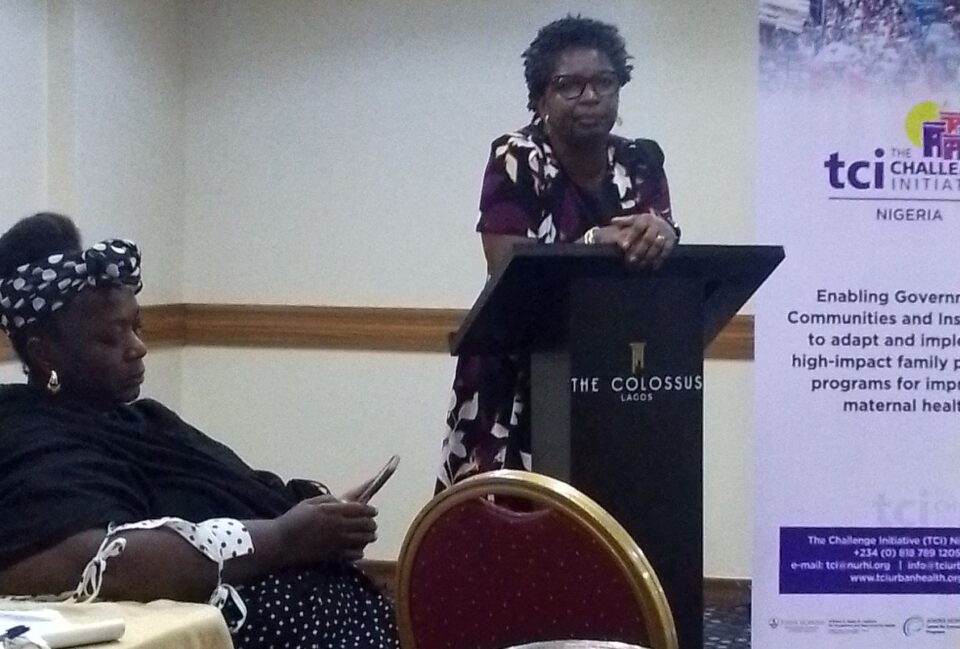Cyriacus Nnaji
Tuesday, June 11, 2024, was indeed a remarkable and momentous day in Lagos State for families as well as individuals desirous of well-planned family lives as The Challenge Initiative (TCI) known for rapidly and sustainably scaling up proven reproductive health solutions among the urban poor, and stakeholders in the Family Planning ecosystem gather to review activities being undertaking by the organization to find permanent solutions to the numerous issues surrounding family planning uptake in the state.
Participants at the event which took place at the popular Colossus Hotel, Ikeja, Lagos, with its serene ambiance, were senior medical experts including key players in the Ministry of Health, the Primary Health Care Board, health districts heads, representatives of relevant government agencies, private sector representatives, partners, and the TCI team.
The objectives of the meeting include but not limited to reviewing the progress of the Lagos Intensification Phase; discussing challenges and identifying actions for course correction; to enable the stakeholders to self-assess their contributions and performances in the 5 focus areas of the LIP using data and draw up actions for improvement in the coming quarters and after the review meeting.
In welcoming participants to the meeting, Dr. Folashade Oludare, Director, Family Health and Nutrition, Ministry of Health, Lagos State, stated that the essence of the gathering was to review the project at hand, which was the Lagos Family Planning Intensification Phase, “To know whether what they introduced to us is working or whether we need to tweak it one way or the other and look at the progress so far.”
Dr Taiwo Johnson, Director, TCI, in her opening remark, thanked Lagos State for partnering with TCI on the Intensification Phase, adding that the essence of it all was to ensure that women in Lagos receive family planning methods whenever they need it. She disclosed, “To do this, TCI embarked on a journey we called Lagos Intensification Phase for two years and at the heart of all this is to scale up all our efforts, to increase family planning uptake using all the modalities available, from advocacy, demand generation, service delivery, and of course using data for informed decisions wherever we go. So this particular phase called LIP, commenced early this year with advocacy visits and we also have a meeting and at the meeting we promised that every quarter we sit down like this and look at the data. Because it is an intensification phase we do not want the meeting to be too far apart, at every point in time we want to look at the data, what we are doing well, what we are not doing well, and then we are able to make decisions based on the data.
She also disclosed the very core value of the intensification exercise which is to ensure that whoever that comes to a facility in Lagos State gets information about family planning. “We hope that at the end of this meeting we would be able to look at the next six months and our plan, making sure we improve on our FB indices and making sure that anyone that comes into a facility in Lagos State is informed about family planning, whether she wants to take it up or not, but she would have received every bit of information about family planning.”
Dr. Olawale Oladapo, Chairman, Association of General Private Nursing Practitioners, Lagos State while speaking on non-provision of data by private clinics said, “If you look at the immunisation rate report gotten from the private sector, we quite appreciate the government, because of the fact that the government gives us the commodities freely and we dispense them freely. But for family planning services and products, some of us that are providing the services source it elsewhere, but when these things are advertised, the public are being told that it is free.”
He disclosed that none of his members has ever gotten the family planning products free from any quarter. “But I tell you, none of our members has reported that they got the family planning products from the Health centres, it has always been stock-out, and considering the economic factor of the business you want to go into, you stock some commodities, maybe you procure10 and at the end of the day you were able to dispense two, and then the others get expired, who want to go into such a business?”
He suggested that the family planning products can be made available just like the vaccines and said that it is not possible for them to render data when the public are not accessing the family planning from the private sector. “You are strategising to make it free, but you are not even supplying it free so that we can render the service freely. And now you are asking for data, when people are not sourcing it from us because it is there, when they come, you tell them that it costs XYZ, they will tell you it is free out there and when they get there, stock-out, so this is a kind of motion without movement, yes we are complaining yet what we are complaining they are not doing anything about it. What it means is that these products are not getting to the end users.”
At the end of the meeting so many challenges were identified and suggestions made. On the Demand Generation side, it was that wrong messaging was as a major challenge, misconceptions about family planning, cultural and religious beliefs, poor referral system, inaccessibility of facilities, waiting time, staff attrition, distance, inadequate personnel, lack of motivation for mobilizers, commodity stock-out, among others.
Solutions were also proffered including that family planning materials should be handled by professionals, there should be serious community engagements about family planning, engagement with religious leaders is also germane, waiting time must be reduced and there should be specific days for family planning, there should be continuous staff training to take care of vacancies created by retirement, japa syndrome, among others.
There were other groups, the Service Delivery, M& E, Commodities and Supplies, all these groups brought forward the challenges in their group as well as solution.
Mr Segun Akinola, Research, M & D Advisor, TCI, delivered a paper titled ‘Lagos State Family Planning Current Indices and Trends”. He spoke on the opportunities that can be leveraged on, challenges, and next steps.



